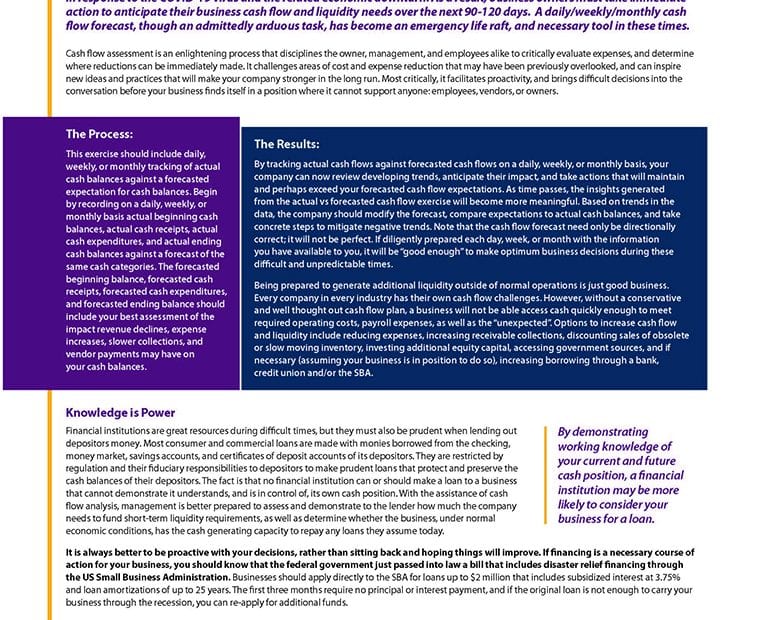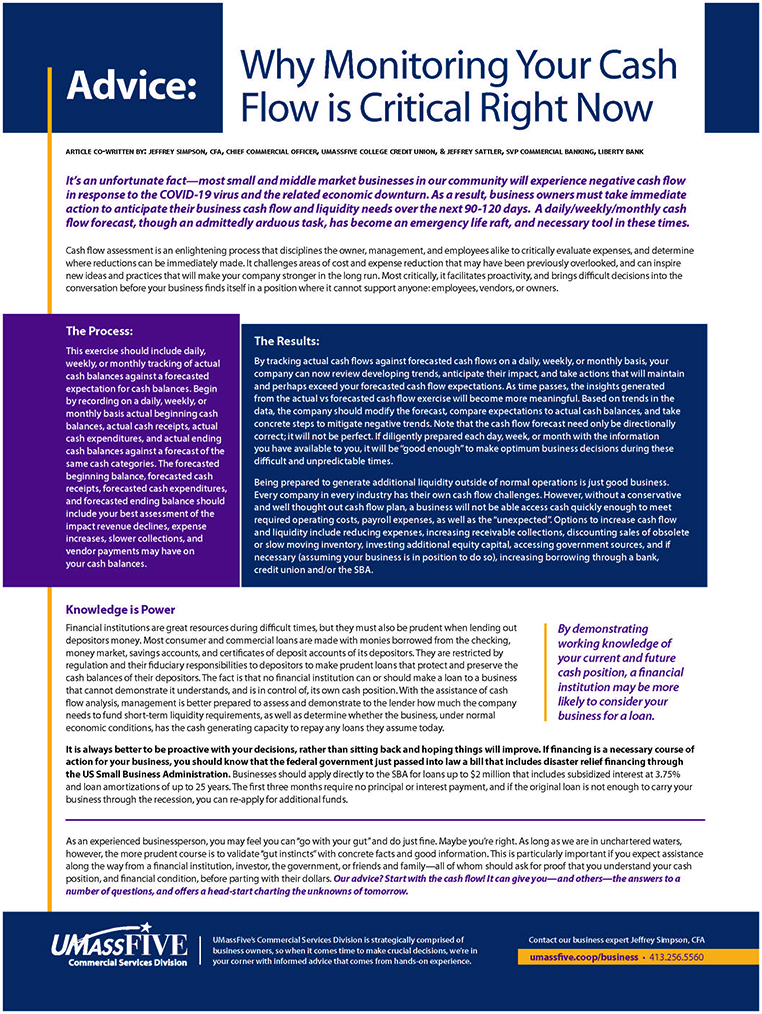Novel Solutions
By John S. Gannon, Esq. and Erica E. Flores, Esq.
It has only been a few weeks since the novel coronavirus made its way to our shores, but life as we know it has changed completely and will, perhaps, never be quite the same again. After a near-record-low unemployment rate in February, nearly 3.3 million Americans filed for unemployment benefits last week, a figure that shattered the previous record of about 700,000 set back in 1982. The report confirms what the plunging securities markets have foreshadowed for the past few weeks — that the coronavirus is killing more than just those who are losing their lives to the disease; it is killing businesses and livelihoods as well.
How long this crisis will continue is impossible to predict. Health experts warn against lifting stay-at-home orders, opening non-essential businesses, and loosening social-distancing recommendations too early; economists worry that the economic consequences will be worse for Americans than the actual disease. But however long this new normal persists, the country has borne witness to another unbelievable sight, a welcome bright spot amid so much uncertainty — a sharply divided Congress coming together to try to mitigate the crisis.
Its first emergency measure? Legislation called the Families First Coronavirus Relief Act (FFCRA). It imposes significant new obligations on all private employers with fewer than 500 employees. Below is a summary of this unprecedented new law.
What new rights does the FFCRA provide to employees? The FFCRA requires covered employers to provide the following to all employees:
• Two weeks (up to 80 hours) of paid sick leave at the employee’s regular rate of pay if the employee is unable to work or telework because the employee (1) has been quarantined (either by government order or on the advice of a healthcare provider) and/or (2) is experiencing COVID-19 symptoms and seeking a medical diagnosis. Employees will be paid their full wages, up to a maximum of $511 per day ($5,110 total) for these sick-leave reasons; and
• Two weeks (up to 80 hours) of paid sick leave at two-thirds the employee’s regular rate of pay if the employee is unable to work or telework because the employee (1) must care for someone who has been quarantined (again, either by government order or on the advice of a healthcare provider), (2) must care for a minor child whose school or childcare provider is closed or unavailable due to the virus, and/or (3) is experiencing a “substantially similar condition,” which has yet to be defined but will be the subject of regulations to be issued by the Department of Health and Human Services. Employees will be paid two-thirds of their wages up to a maximum of $200 per day ($2,000 total) for these sick-leave reasons.
• Employees who have been employed by a covered employer for at least 30 days may also take an additional 10 weeks of paid leave at two-thirds their wages to continue to provide care for a minor child whose school or childcare provider remains closed or unavailable due to the virus. This also caps out at $200 per day.
How are we going to pay for this? Important question! Qualified employers that pay sick leave will receive a dollar-for-dollar reimbursement through tax credits for all qualifying wages paid under the FFCRA, up to the appropriate daily and aggregate payment caps. Here’s how the IRS explained it will work:
• If an eligible employer paid $5,000 in sick leave and is otherwise required to deposit $8,000 in payroll taxes, including taxes withheld from all its employees, the employer could use up to $5,000 of the $8,000 in taxes it was going to deposit for making qualified leave payments. The employer would only be required under the law to deposit the remaining $3,000 on its next regular deposit date.
• If an eligible employer paid $10,000 in sick leave and was required to deposit $8,000 in taxes, the employer could use the entire $8,000 of taxes in order to make qualified leave payments and file a request for an accelerated credit for the remaining $2,000.
In its guidance, the IRS also stated that “reimbursement will be quick and easy to obtain. An immediate, dollar-for-dollar tax offset against payroll taxes will be provided. Where a refund is owed, the IRS will send the refund as quickly as possible.” Let’s hope this rings true.
Which employers are covered by the FFCRA? The FFCRA covers certain public employers and all private employers with fewer than 500 employees. For purposes of this count, employers must include all full-time and part-time employees in the U.S. (or any U.S. territory or possession), including any employees who are on leave, as well as temporary employees and day laborers supplied by an agency (with limited exceptions). Independent contractors need not be counted, but employers who may be a joint employer with another business or are owned even in part by another entity should consider consulting an employment attorney for additional guidance.
Are any employers exempt from the FFCRA? Small businesses with fewer than 50 employees may qualify for exemption from the requirement to provide sick time or FMLA leave due to school closings or the unavailability of childcare if doing so would “jeopardize the viability of the business as a going concern.” Regulations outlining this exemption are expected to be published by the Department of Labor in April.
When does this go into effect, will this leave be available forever, and do we need to notify employees? The law is effective April 1, 2020, and expires on December 31, 2020. And, yes, employers are required to post a notice in the workplace on the FFCRA requirements in a conspicuous place.
We are facing an extraordinary crisis. While this law will certainly be a challenge for employers to grapple with, it is important legislation that helps keep workplaces safe by encouraging sick employees to stay home. It also provides much-needed job and financial protection to employees who are home with their children because schools and daycares are closed. One piece of advice: don’t wait until the sick-leave requests start coming to get your questions answered. Our firm has been working around-the-clock with businesses and organizations that understand they need to plan now for the impact of this historic legislation. Be as prepared as possible, and stay safe.
John S. Gannon and Erica E. Flores are attorneys at the law firm Skoler, Abbott & Presser, P.C. in Springfield; (413) 737-4753; [email protected]; [email protected]









